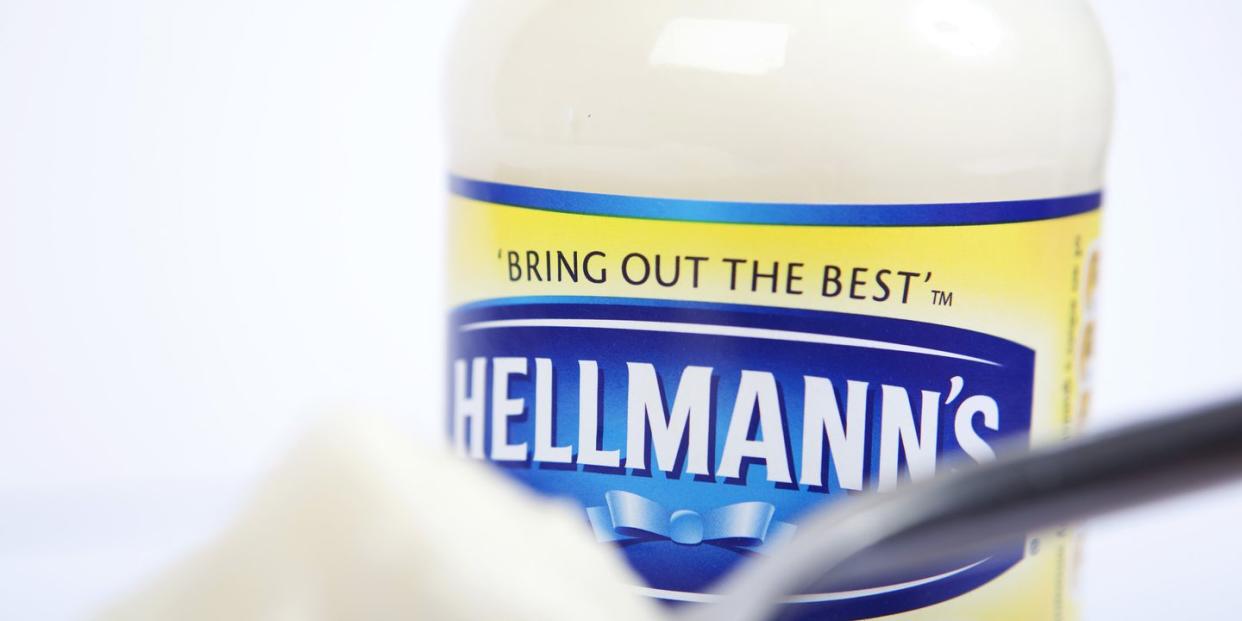Columnist Declares Mayonnaise Dead, Murdered By Millennials

On Sunday night at 8:59 p.m., Philadelphia published a column, “The White Stuff,” in which writer Sandy Hingston announced-we can assume breathlessly, given the publication time-the lamentable death of mayonnaise at the hands of her children’s terrible generation.
After noticing that her potato salads, “fragrant with dill,” an uncontroversially repulsive herb, were being “shunned” at family cookouts, and, more recently, attending a barbecue which had several kinds of mustard, ketchup, salsa, kimchi, wasabi, and the unsubtle and unimaginative dog whistle, “relishes of every ilk and hue,” but no mayo, she had a revelation: Not that perhaps her potato salads were bad, but rather, “While I wasn’t watching, mayo’s day had come and gone… Good ol’ mayo has become the Taylor Swift of condiments.”
When I wore a stovepipe hat to my first day of work at the Esquire offices, I did not immediately declare that millennials had killed the once-noble hat. Instead, I had a long, hard conversation with a portion of my team of therapists and determined that maybe a stovepipe hat was overly formal, and didn’t match the rest of my outfit, a clear rubber bodysuit. Maybe a lesson?

Hingston goes on to equate the rise of mayo with a generation of immigrants hoping to become unremarkable, assimilated Americans, and, in doing so, makes several large logical leaps. First of all, Taylor Swift is, regardless of what you think of her, very popular. If mayo is the Taylor Swift of condiments, mayo receives a lot of tabloid coverage about its various relationships with boyish men and sells millions of albums; in this world, mayo is controversial, but still, inarguably, A-list. Hingston also claims that the phrase, “Hold the mayo,” is proof that mayo was once so universally-beloved that you had to publicly identify yourself as a deviant if you didn’t like it; it seems to me that the popularity of the phrase would indicate that a lot of people actually really didn’t like it. I mean, right? Am I totally off my nut?
The columnist then brutally pits her children against one another: “My son Jake, who’s 25, eats mayo. He’s a practical young man who works in computers and adores macaroni salad. He’s a good son.” Contrasted with Sandy's good macaroni boy, is her daughter, unnamed (!), who was a women’s and gender studies major in college and “naturally” hates mayonnaise. In this handy juxtaposition, Hingston equates loving mayo with maleness and goodness, and hating mayo with women’s and gender studies majors, while completely ethering her only daughter!
If mayonnaise is dead, tell me why I am reading an article titled, “Mayonnaise Ice Cream Exists and the Internet Is in Flames?” Tell me why, according to Eater, chefs “can’t stop making bougie deviled eggs,” or why the New Yorker (ever heard of it?) has run a piece from food critic Hannah Goldfield about oeuf mayonnaise, a dish, she declares, that is good enough to win over both egg and mayonnaise skeptics? Or why, just this past March, Esquire herself declared that mayo was a better burger condiment than ketchup? Or why I got up this morning and ate my daily breakfast of mayonnaise and mayonnaise on two pieces of soft white bread?
But of course, Hingston isn’t just a highly enthusiastic mayo evangelist. She’s very obviously grappling with her anxiety about aging into oblivion and what I'm sure is, for her, stressfully persistent racism.

“Young people like my daughter,” she continues, becoming more overt by the sentence, “somehow seem to have extrapolated this masking function from condiment to culture; for them, mayo quite literally whitewashed America’s immigrants into eating dull food. And newer generations are refusing to meekly fall in line with a culinary heritage that never was theirs. Instead, they’re gobbling up kefir and ajvar and chimichurri and gochujang again. They’re also shunning their parents’ preferred restaurants-Applebee’s, Ruby Tuesday, TGI Fridays-to seek out more authentic fare.”
If you've been paying attention, mayonnaise is not the only victim of millennials' endless thirst for blood-we've also been accused of killing objects and ideas including napkins, golf, lunch, marriage, hotels, and the Toyota Scion. But at a certain point, it's worth asking, what if they're just dying?
“Just because something is old and white doesn’t mean it’s obsolete,” Hingston counters. “Look at Shakespeare. Look at me.”
Look at me.
There is such a thing as white culture, I can imagine Hingston screaming into her craft closet, and it’s my husband, mayonnaise.
May he rest in peace.
('You Might Also Like',)

